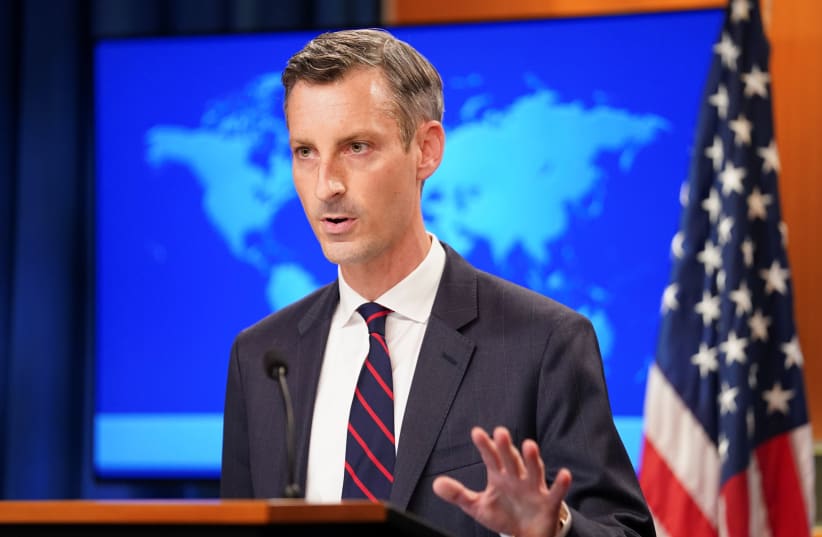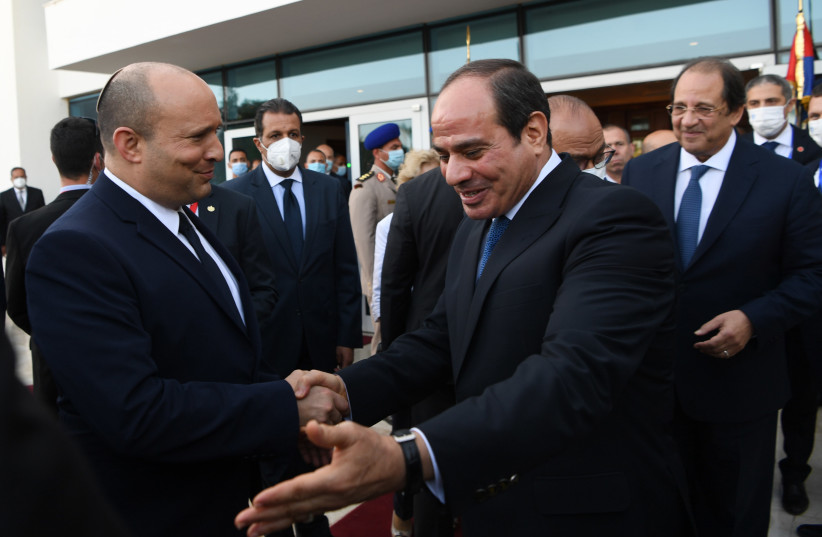The US does not expect to see renewed talks between Israelis and Palestinians in the near future, US State Department spokesman Ned Price told reporters in Washington on Wednesday.
“I don’t think you’ve heard us call for explicitly face-to-face negotiations at the present,” Price said.
He spoke in repose to a question about Prime Minister Naftali Bennett’s statements in a media interview he gave on Monday that he has no plans to speak with Palestinian Authority President Mahmoud Abbas.
Bennett told KAN News, “I do not see the logic in meeting or talking to a person [Abbas] who is suing IDF soldiers and their commanders at the International Criminal Court at The Hague.”
Abbas is “accusing IDF commanders and soldiers of war crimes,” while he is providing monthly monetary stipends to terrorists, the prime minister said.
Price, however, clarified that the US at this time was not pushing for Bennett-Abbas talks.
“We are seeking to see to it that Israelis and Palestinians experience equal measures of safety, of security, of prosperity, and of dignity,” Price said.
“The starting point that we have right now… is not one where I think we would expect to see direct negotiations between the parties lead to any sort of breakthrough in the near term,” Price explained.
“What we are trying to do is to pave a glide path to negotiations so that in incremental, tangible ways we can move closer and closer to that goal of seeing to it that Israelis and Palestinians alike can achieve these elements,” he added.
“We are realistic about where we are, we are realistic about the road ahead, but that doesn’t mean that we should not attempt to move the ball forward in meaningful and tangible ways.”
The expectation for such talks has been raised because Bennett has met with Jordan’s King Abdullah, US President Joe Biden and Egyptian President Abdel Fattah al-Sisi. Defense Minister Benny Gantz also held a rare meeting in Ramallah with Abbas.
Sisi’s office said that Egyptian president raised the issue of a two-state resolution to the Israeli-Palestinian conflict when he met Bennett in Sharm e-Sheikh earlier this week.
In his interview on Monday, Bennett dismissed the possibility that a Palestinian state would be created while he was in office.
“I oppose a Palestinian state. I think it would be a terrible mistake that would take the terrible situation in Gaza and recreate it in Judea and Samaria,” Bennett said.
His comments referred to Hamas’s ouster of the PA from Gaza in a bloody coup in 2007 and its forcible take over of the coastal enclave as well as the consequent rocket attacks against southern Israel.
He inferred that if Hamas or another radical Palestinian group would similarly take over the West Bank, it would turn the lives of Israelis living in Kfar Saba and his home city of Ra’anana into a living hell.
“I will not do that,” he said.
Bennett said that he understands that in any event, Palestinian statehood is not feasible at this time and thus the question of whether to support it was not relevant.
It is, however, important to provide economic opportunities for the Palestinians that would improve their lives, he said.
“My outlook is a very business-like one,” he said. “If we create more business, strengthen the economy and improve living conditions for everyone in Judea and Samaria, that would be better.”

